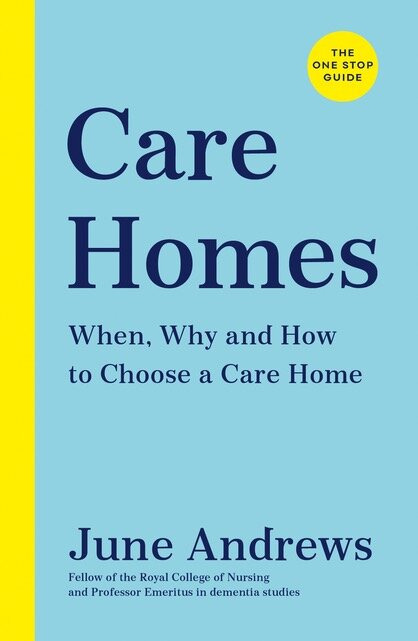
Care Homes
When, Why and How to choose a Care Home
Who needs this care homes guide?
Over 100,000 people who make this choice every year in the UK.
When is the right time to read it?
You need it badly if you are in the middle of a crisis. I hope people will read it long before then, to understand what might be in store and how to make the best of things.
This includes other things you need to plan, like setting up powers of attorney so that someone can make decisions for you, if you can’t do that yourself. And financial planning, so that receiving care doesn’t completely wipe out any legacy you intended to pass on to the next generation.
Home care or a care home (if, or when, it is needed) can be a joy and a respite, exactly as you would want it to be, and a welcome solace when living independently has become too hard or lonely.
Half a million of us are in care homes in the UK at any one time
“It may not have crossed your mind to prepare for it. You may not have discussed what everyone involved – including the person going into the home – would like to happen, if such a day comes.”
No one likes to contemplate it, but with half a million of us in care homes in the UK at any one time, the chance that someone you love or care for will need this is high. If you’re prepared, you can make the best of it, and the resident can have a good time, with kind, caring and knowledgeable people around them. A good care home is a reward for a life well spent, and providing that care is a joy for the people who do it well. You just want to avoid the pitfalls.
This is one of the most emotional and expensive decisions that anyone ever has to make.
How to choose a care home
The majority of people making the choice for another are oldest daughters or other relatives of the person moving in. The choice may rest with social workers, but with luck, it will be the resident themselves.
You are probably doing this without experience, under time pressure and in an emotional whirlwind, while adjusting to illness or loss of capacity in a loved one. You might be reeling from the death of one parent, while having to decide how to care for the other.
What if you have difficulty getting other family members to agree to your choices? What if you and feel judged by others – neighbours and friends, and even the relative you are supporting – for what you eventually decide to do? Sometimes you may even have promised that you would never allow it to happen.
Almost 500,000 care-home beds in the UK
There are almost 500,000 care-home beds in the UK. Each one is occupied by a person who has either chosen it themselves or had it chosen for them. The majority of residents (up to 90 per cent) are frail older women who have dementia. There are exceptions, for example some younger people with dementia, men, people with learning difficulties or brain damage, and a wide range of vulnerable adults and children.
“For the majority – those with dementia – there is the added complication of legal mental capacity”
For the majority – those with dementia – there is the added complication of legal mental capacity, meaning that a court order may be needed to make decisions, if they did not set up a power of attorney in advance to allow someone else, chosen by them, to make decisions on their behalf. It all means trouble and expense. A judgement has to be made, balancing the advantages and disadvantages of care at home or in a care home. The length of stay of frail older people in care homes is reducing. From choice or cost containment, the date of entering a care home is now closer to the end of life than it was previously. Increasing numbers of people make a care-home choice every year. You may be among the thousands looking for advice about how to make this decision.
The aim is to make it easy for you to dip into the Guide
The aim is to make it easy for you to dip into the Guide. I’d hate for you to have to read all of it from end to end to find what you want, though it is written so you can read it like that. If you’re reading the book, your life is probably annoying enough already. Hopefully any repetition is helpful rather than irritating. Read the Guide throughout the care-home process – from the moment you begin thinking about the possibility, through the search for the right care home, up to settling in and getting the most out of the new situation.
I have a lot of experience, which I hope will help you during a difficult time.
Take a look inside the book (opens in Amazon)
What you will find in the Care Homes Book
Introduction
PART I: Considering Care
1. The Basics
2. How to avoid a care home
PART II: Looking for a Care Home
3. What you need to know before you start
4. Checking out a care home
5. Services to expect
PART III: Get the Most Out of a Care Home
6. Life in a care home
7. Comments and complaints
8. Leaving
PART IV: The Costs
9. Emotional costs
10. Financial costs
PART V: Some Tools
11. Essential guide to key ideas
Buy Now: Amazon • Waterstones • Profile Books • WHSmith
If you would like to know more, please email me at info@juneandrews.net. My new book Care Homes; When, Why and How to Choose a Care Home is out now in all good bookshops.





